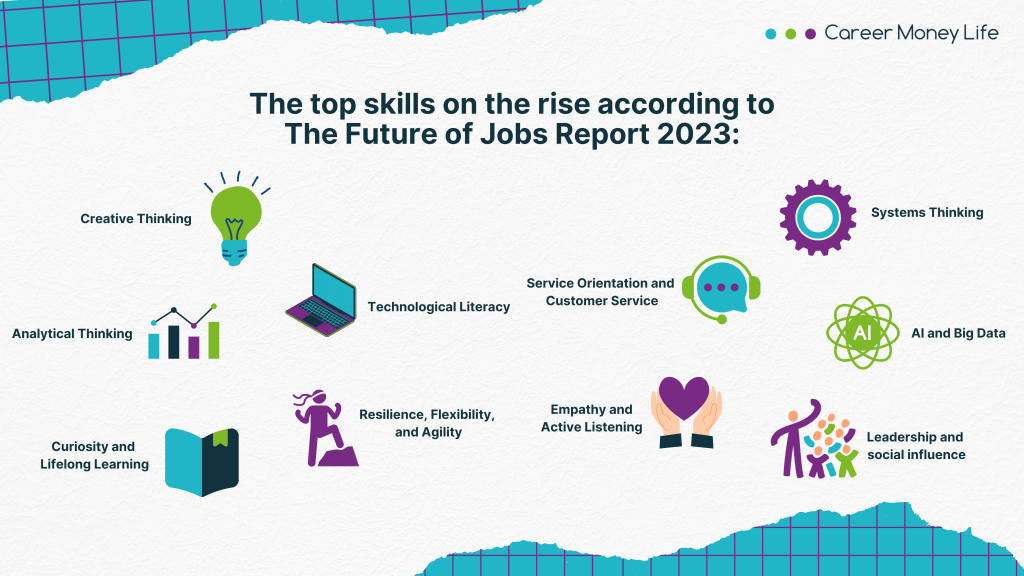AHRI’s Quarterly Australian Work Outlook for the June quarter of 2024 provides valuable insights into the state of the Australian labour market, offering essential information for job seekers and professionals alike. Based on a survey of 600+ senior HR professionals and decision-makers across various sectors, the report highlights several key trends and challenges facing the Australian workforce.
1. Demand for Labour and Recruitment Challenges
Despite a slight easing in the labour market, the demand for labour continues to grow, with net
employment intentions at +36 for the June 2024 quarter. This indicates that many organisations are still looking to hire, which is good news for job seekers. However, 40% of organisations report
recruitment difficulties, particularly in finding candidates with the right skills. For job seekers, this
highlights the importance of showcasing relevant skills and qualifications to stand out in a competitive job market. Consider investing in upskilling or training programs to enhance your employability and meet the evolving demands of employers.
2. Employee Turnover and Skills Gap
Employee turnover rates remain high, with almost a third of organisations reporting annual turnover rates of 20% and above. This ongoing turnover can be costly for employers and may impact productivity. For job seekers, this indicates a dynamic job market with opportunities for career advancement and growth. However, it also underscores the importance of job stability and the need to carefully evaluate potential employers to ensure a good fit. Consider exploring industries or sectors with lower turnover rates for more stable career prospects. Use sources such as LinkedIn Company pages to see the level of new hires at the companies you are interested in working at. You can also explore Glassdoor reviews to better understand turnover and culture at your target companies.
Additionally, almost one in five Australian workers are not considered fully proficient in their roles, with skills gaps having a moderate or significant negative impact on productivity for 57% of employers. To tackle this, employers are planning to increase training investment, with 37% of organisations intending to increase training budgets over the next 12 months. For job seekers, this highlights the importance of continuous learning and professional development. Look for opportunities to expand your skills and knowledge to remain competitive in the job market. Ask about training and development opportunities in your interviews so you can select the best long-term career path that will enable you to continue to keep your skills current and marketable.
Explore the many online and free training resources available to help you improve your skills while looking for a new role:
Explore the many online and free training resources available to help you improve your skills while looking for a new role:
- Coursera: Offers a wide range of free courses from universities and colleges around the
world. Courses cover various topics, including business, technology, and personal
development. - edX: Provides free online courses from top institutions. It covers a broad range of subjects,
from computer science to languages and humanities. - Khan Academy: Offers free courses, lessons, and practice exercises across a wide range of
subjects, including math, science, economics, and humanities. - Google Digital Garage: Provides free courses on digital marketing, data and tech, career
development, and business. Certificates are also available for some courses. - LinkedIn Learning: Offers a free trial period and a wide range of courses on business,
technology, and creative skills. After the trial period, a subscription fee is required. - Codecademy: Offers free coding classes in various programming languages, including
Python, HTML, CSS, and JavaScript - MIT OpenCourseWare: Provides free lecture notes, exams, and videos from MIT courses.
While you won’t receive credit for completing these courses, they can be a valuable learning
resource. - FutureLearn: Offers free courses from universities and cultural institutions around the world. Courses cover a wide range of subjects, including business, healthcare, and technology.
- TED-Ed: Provides free educational videos on a wide range of topics, including science,
history, and literature. These videos can be a great way to supplement your learning and gain new insights.

You may also want to explore the World Economic Forum Future of Job Report 2023 which provides insights into the most in-demand skills for the next 5 years. The top skills on the rise, according to the report, are:

- Creative thinking
- Analytical thinking
- Technological literacy
- Curiosity and lifelong learning
- Resilience, flexibility, and agility
- Systems thinking
- AI and big data
- Motivation and self-awareness
- Talent management
- Service orientation and customer service
- Leadership and social influence
- Empathy and active listening
- Dependability and attention to detail
- Resource management and operations
- Networks and cybersecurity
- Quality control
- Design and user experience
- Teaching and mentoring
- Environmental stewardship
- Programming
- Marketing and media
- Multilingualism
- Reading, writing, and mathematics
- Global citizenship
- Sensory-processing abilities
- Manual dexterity, endurance, and precision
3. Wage Expectations and Sector Variances
Wage expectations have moderated, with the mean basic pay increase expected to be 3% in the 12 months to April 2025. However, wage expectations are higher in the public sector (4.5%) than in the private sector (2.6%). Large organisations are also expecting higher wage increases (3.9%) compared to small (2.8%) and medium-sized organisations (1.7%). For job seekers, this suggests that opportunities for higher wages may be more prevalent in the public sector and larger organisations. Consider exploring job opportunities in these sectors for potentially higher earning potential, but in spite of the cost of living pressures, money isn’t the only factor to consider when choosing your next role.

What to consider when selecting a new job offer:
Consider each of the following and make an informed decision based on your priorities and career goals:
- Compensation and Benefits
- Salary: Ensure the base salary meets your financial needs and is competitive within
the industry. - Bonuses and Incentives: Understand the structure of bonuses, commissions, or
performance incentives. - Benefits Package: Evaluate flexible work options, parental leave, EAP, and wellbeing
support, training, and career transition support if you are made redundant. - Share Options/Equity: If applicable, consider the potential value of share options or
equity.
- Salary: Ensure the base salary meets your financial needs and is competitive within
- Job Role and Responsibilities
- Job Description: Review the specific duties and responsibilities to ensure they match
your skills and interests. - Career Growth: Assess opportunities for professional development, promotions, and
career advancement. - Work-Life Balance: Consider the expected work hours, flexibility, and any remote
work options.
- Job Description: Review the specific duties and responsibilities to ensure they match
- Company Culture and Values
- Company Mission and Values: Ensure the company’s mission aligns with your
personal values and goals. - Work Environment: Investigate the company culture, including management style,
team dynamics, and overall workplace atmosphere. - Diversity and Inclusion: Look at the company’s commitment to diversity and inclusion
initiatives.
- Company Mission and Values: Ensure the company’s mission aligns with your
- Location and Commute
- Commute: Consider the daily commute time and transportation options.
- Relocation: If relocation is required, evaluate the support provided by the company
and the quality of life in the new location.
- Job Security and Company Stability
- Company Performance: Research the company’s financial health, market position,
and future growth prospects. - Job Security: Evaluate the stability of the role and industry trends that might affect job
security.
- Company Performance: Research the company’s financial health, market position,
- Management and Team
- Leadership: Consider the management style of your potential supervisor and the
senior leadership team. - Team Dynamics: Evaluate the composition and dynamics of the team you will be
working with.
- Leadership: Consider the management style of your potential supervisor and the
- Professional Growth
- Training Programs: Look for opportunities for professional development, including
training programs, workshops, and courses. - Mentorship Opportunities: Assess the availability of mentorship and guidance from
experienced professionals.
- Training Programs: Look for opportunities for professional development, including
- Company Performance and Influence
- Reputation: Research the company’s reputation in the industry, including reviews
from current and former employees. - Industry Standing: Consider the company’s standing and influence within its industry.
- Reputation: Research the company’s reputation in the industry, including reviews
- Job Offer Terms
- Offer Letter: Carefully review the offer letter, including all terms and conditions.
- Contract: Understand the details of any employment contract, including non-compete
clauses, confidentiality agreements, termination conditions, notice period and
redundancy provisions.
- Personal Considerations
- Personal Goals: Reflect on how the job aligns with your long-term personal and professional
goals. - Family and Personal Life: Consider how the job will impact your family and personal life,
including any necessary adjustments.
- Personal Goals: Reflect on how the job aligns with your long-term personal and professional
Conclusion
The current job market is complex and changing for job seekers, it is critical to continue to upskill, showcasing relevant skills, and carefully evaluating potential employers for stability and growth opportunities. By staying informed and adaptable, job seekers can position themselves for success in a competitive and evolving job market.
Supporting Your Exiting Employees with Career Money Life
As an HR professional, ensuring you are doing everything to support your exiting employees for their success in a complex job market is crucial. At Career Money Life, we understand the challenges that come with career transitions. Our innovative CareerHub offers a unique solution, allowing your employees to use their career transition credits to upskill in the key areas identified by the World Economic Forum Future Skills, ensuring they are equipped to compete and thrive. Partner with us to provide comprehensive career transition support that empowers your employees to navigate the job market confidently and successfully.
Written by Sandy Hutchison, Founder and CEO, Career Money Life.
If you need support, our Career Transition program can make a world of difference, build your confidence and get you on the path to your next new beginning. Contact us to find out more.

